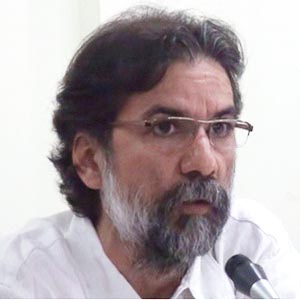Censorship
serves no other purpose but political. That is what Sanjay Kak, an ace
documentary filmmaker said at grand finale of orientation ceremony held at Indian Institute of Mass
Communication, New Delhi. He had been invited to provide some insights to
IIMCians on documentary-filmmaking and also make them aware of the pitfalls one
has to go through being in this profession. As documentaries are usually based
on serious issues, multiplexes don’t showcase them and most of the time the
content of documentaries gets controversial thus leads to showcase-challenges.
On asking why he won’t allow censorship of controversial segment, he
emphatically answered “I would accept screening-hurdles but would never
compromise on my message.”
His lecture was tailored with the history of
documentary culture in India, also beautifully embroidered with his personal
anecdotes. Though the trend of documentary set in after WW2, it is only after
1977 that the watershed moment came with the popularity of documentaries like
Prisoners of Conscience, Waves of Revolutions by renowned documentary filmmaker
Anand Patwardhan who also happens to be his inspiration. It was Mr.
Patwardhan’s visit in his college which sowed the seeds of documentary-love in
his heart. He shared an interesting anecdote that it used to be mandatory for
movie-theatres to screen at least one documentary before projecting movie but
the trend somehow died. Though he advocated that it must be rejuvenated but
also added with the inception of internet, documentaries are actually reaching
out to people. Screening is no more a problem. There is now a good chunk of
audience interested in documentaries.
Mr. Kak ended his lecture by reiterating that
censorship isn’t pro public but political and which is why independent
filmmakers need not bend knees before politicians or extremists. If the work is
flawless and extraordinary, it will surely be recognized by audience whatever
may be the medium. If not an organized screening then an online one!





